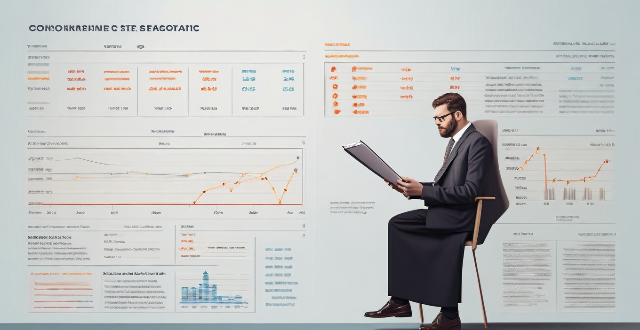This comprehensive guide provides effective tax planning strategies for businesses, emphasizing the importance of understanding tax laws and regulations, hiring a qualified tax professional, timing income and expenses strategically, making use of tax credits and deductions, investing in retirement plans, leveraging tax-advantaged investments, maximizing depreciation deductions, considering alternative entity structures, and staying up-to-date on tax law changes. By implementing these strategies, businesses can minimize their tax liabilities while ensuring compliance with tax laws.

Effective Tax Planning for Businesses: A Comprehensive Guide
Tax planning is an essential aspect of running a business. It involves identifying and implementing strategies that help minimize tax liabilities while ensuring compliance with tax laws. Effective tax planning can significantly reduce the amount of taxes paid by a business, thereby increasing its profitability. In this article, we will discuss some effective tax planning strategies for businesses.
1. Understanding Tax Laws and Regulations
The first step in effective tax planning is to understand the tax laws and regulations applicable to your business. This includes both federal and state tax laws, as well as any international tax laws if your business operates globally. By understanding these laws, you can identify opportunities to legally reduce your tax liability.
2. Hiring a Qualified Tax Professional
It is crucial to hire a qualified tax professional who can provide guidance on effective tax planning strategies. They can help you navigate complex tax laws, identify potential tax savings opportunities, and ensure compliance with all applicable tax regulations.
3. Timing Your Income and Expenses
One effective tax planning strategy is to time your income and expenses strategically. For example, delaying revenue recognition until the next tax year or accelerating expenses into the current tax year can help lower your taxable income. This strategy should be used judiciously to avoid triggering audits or penalties.
4. Making Use of Tax Credits and Deductions
There are numerous tax credits and deductions available for businesses, such as research and development credits, employee benefits deductions, and charitable contributions deductions. By taking advantage of these credits and deductions, you can significantly reduce your tax liability.
5. Investing in Retirement Plans
Investing in retirement plans like 401(k) plans or SEP IRAs can provide significant tax benefits for businesses. These plans allow businesses to deduct contributions made on behalf of employees from their taxable income, reducing their overall tax liability.
6. Leveraging Tax-Advantaged Investments
Investing in tax-advantaged investments like municipal bonds or real estate investment trusts (REITs) can also provide tax benefits for businesses. These investments offer tax advantages that can help reduce your overall tax liability.
7. Maximizing Depreciation Deductions
Depreciation deductions allow businesses to deduct the cost of assets over time as they wear out or become obsolete. By maximizing depreciation deductions, businesses can reduce their taxable income and lower their tax liability.
8. Considering Alternative Entity Structures
Choosing the right entity structure for your business can have significant tax implications. For example, certain entity structures may offer more favorable tax treatment than others. Consulting with a tax professional can help you determine the best entity structure for your business based on your specific circumstances.
9. Staying Up-to-Date on Tax Law Changes
Tax laws are constantly changing, so it's essential to stay up-to-date on any changes that may impact your business. This includes monitoring changes in federal and state tax laws, as well as any international tax laws if your business operates globally. By staying informed about these changes, you can adjust your tax planning strategies accordingly.
In conclusion, effective tax planning is crucial for businesses looking to minimize their tax liabilities while remaining compliant with tax laws. By understanding tax laws and regulations, hiring a qualified tax professional, timing income and expenses strategically, making use of tax credits and deductions, investing in retirement plans, leveraging tax-advantaged investments, maximizing depreciation deductions, considering alternative entity structures, and staying up-to-date on tax law changes, businesses can effectively plan their taxes and improve their financial performance.